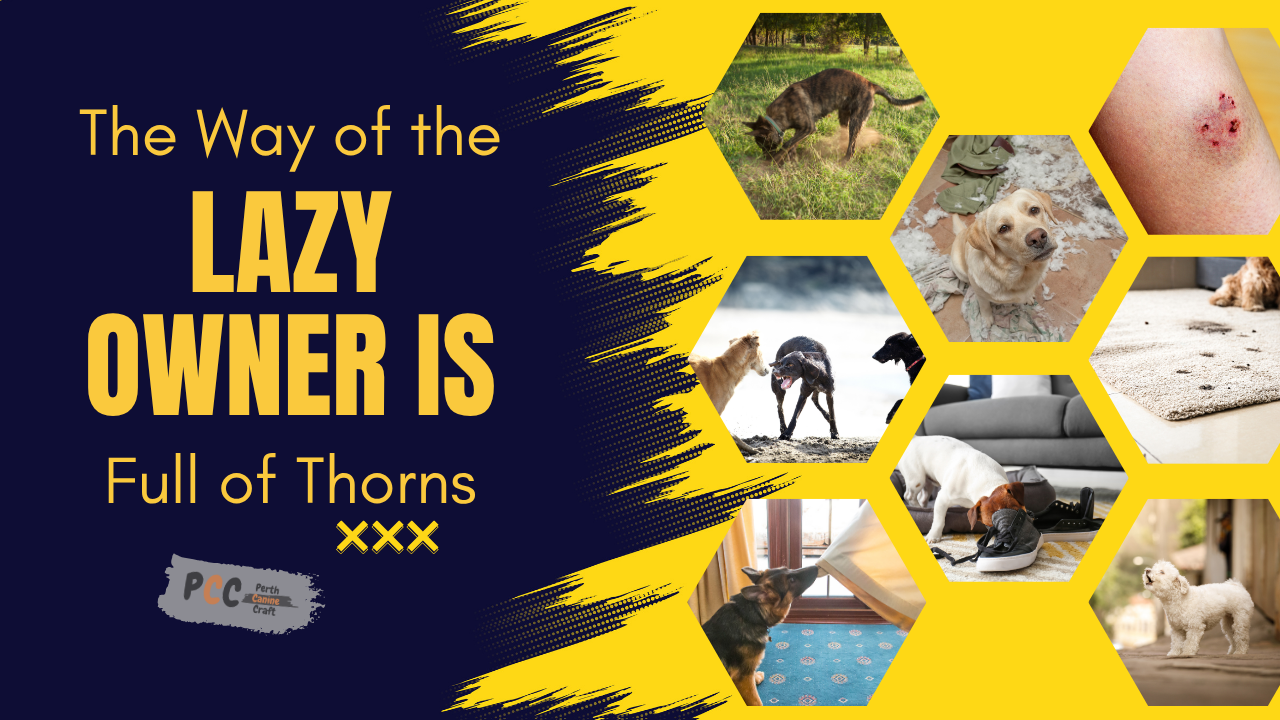This is a story I hear far too often:
“There’s no space in the new house anymore. She’s very pushy and clingy, sits on people, can’t be left alone near the baby, cries behind the baby gate, trips us up in the kitchen, barks non-stop outside, digs at the fence, and loses control around moving things on walks. I’ve had to increase work hours, so I can’t help my wife when she’s overwhelmed.”
Let’s be honest—this isn’t a rare case. It’s what happens when we raise dogs without boundaries, resilience, or structure. As a dog trainer and dog owner coach, this is the dark side of my industry: People often don’t rehome their dogs because of tragedy or necessity, but because they created a dog, they now find inconvenient.
🏚️ You Moved—What About the Dog?
If you’re getting a new house, the dog should be part of the plan. Yes, rentals can be hard—I’ve lived in many. But I always went the extra mile:
- Dog profiles included with applications
- References from past rentals
- Damage managed or fixed beyond expectation
If more dog owners did this, landlords might be more pet-friendly. But they won’t if people keep trashing properties and blaming the dog.
🚫 Pushy? Clingy? That’s a You Problem.
- A pushy dog (demanding, bratty, intrusive) needs frustration tolerance, to understand “no,” and learn to work as a team.
- A clingy dog (fearful, anxious, over-attached) needs confidence, independence, and to self-soothe.
These things don’t develop naturally—they’re imprinted or nurtured by their environment a.k.a YOU. And when they aren’t, dogs become stressful burdens instead of family members.
🧠 Any Unfulfilled Dog with Drive Will Find Trouble
Does your dog:
-
Chace anything that moves?
-
Digging?
-
Jumping.
-
Excessive barking?
- Mouthing?
That’s drive. not just “bad behaviour.” It’s what happens when a dog’s instincts aren’t fulfilled. You’re not just dealing with behaviour—you’re dealing with unmet biological needs.
If you don’t fulfil the dog’s drive, it is your responsibility to learn how to do so constructively, and teach impulse control, or you’ll be left with chaos.
🤝 Rehoming Is Not the Enemy—But It Shouldn’t Be the Default
Am I saying you should never rehome your dog? No.
Sometimes rehoming is the most loving and responsible thing to do.
But here’s the thing:
If the only reason you’re rehoming is because your dog is a burden you created—that deserves honest reflection. There should be skin in the game. Accountability. Not just, “Oops, she’s hard work now—good luck to the next person.”
🐾 Raise a Dog Who Can Be Rehomed—If It Comes to That
The real goal isn’t to keep every dog no matter what—it’s to raise a dog that could be rehomed ethically, responsibly, and with hope for their future if they don’t work out. The reality is that it doesn’t always work out – I’ve raised hundreds of pups, and even I can tell you, I would have kept less than 15% of any of them that would have fit my lifestyle.
That takes:
- Early education and coaching for both end of the leash.
- Boundaries and routine – teach the pup to fit in with you but be realistic as they develop.
- Emotional resilience – not just the pup’s but yours too.
- Clear expectations – clarity is great.
- Fulfilled instincts – a fulfilled dog is a great dog to live with.
If you do this work, even if life throws a curveball and you have to rehome your dog, you can do so without shame. You gave them what they needed to be adaptable and stable. But if you never put in the work—don’t just blame the dog when things fall apart.
A wise man values instruction—even when it’s hard. A fool blames the dog.
Let’s do better. For their sake—and ours.





0 Comments